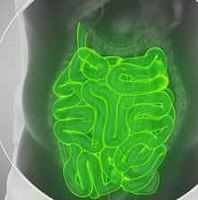Article
Mitigate Complications from Crohn's Disease With New Care Plan
Author(s):
To help physicians effectively manage septic perianal Crohn’s disease (CD), Penn State College of Medicine researchers published a medical and surgical care plan based on a decade’s worth of analyses and patient outcomes.

To help physicians effectively manage septic perianal Crohn’s disease (CD), Penn State College of Medicine researchers published a medical and surgical care plan based on a decade’s worth of analyses and patient outcomes.
Septic perianal CD, a complication occurring in approximately 40% of CD patients, causes infected abscesses that develop into fistulas, which can be difficult to treat and can lead to significant patient discomfort.
Before the immunosuppressant medication infliximab entered the scene, septic perianal CD was generally treated with surgery. However, patients only showed a drug response rate of up to 60%; just a quarter of the patients experienced consistent healing after taking the medication for a year.
According to Walter A. Koltun, MD, what was considered a “silver bullet” for this condition, actually was not. Regardless, many patients continued with this expensive treatment for lack of better options, and their doctors worried the condition would otherwise have drastically become worse.
The researchers’ improved treatment plan calls for using medications coordinated with surgery. The team specifically analyzed 135 episodes of septic perianal CD to assess a combined medical and surgical protocol for treatment management — they understood there was a role for both medicine and surgery.
Koltun says this protocol is a “decision tree” one that specifies when and what kinds of surgical treatment are recommended for fistulas that don’t respond favorably to medical management.
Upon using this protocol, their analysis revealed, patients maintained a 60% rate of healing at least six months.
But, among the remaining 40%, half the patients did not heal and ended up requiring a permanent ostomy bag. The other half exhibited some improvement, but didn’t completely heal.
The team also advanced research into perianal CD by analyzing gene variations called single nucleotide polymorphisms (SNPs) to see if they predicted the likelihood a patient would heal. While results didn’t appear to be statistically significant, they showed promise and some SNPs are likely to be included in other studies of perianal CD.
While experts pursue more research, Koltun hopes this care plan will “help patients get treated in a more consistent fashion,” thereby providing sharper guidance on appropriate calls for discontinuing the drug and/or trying the surgery.





